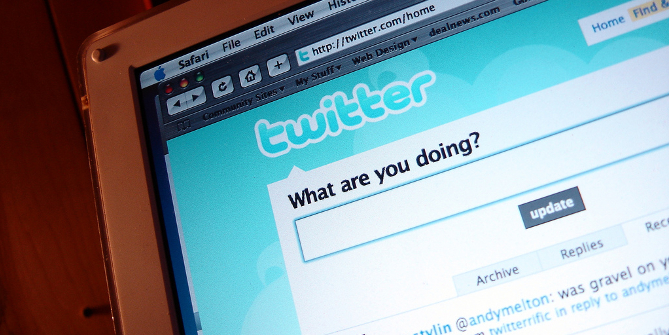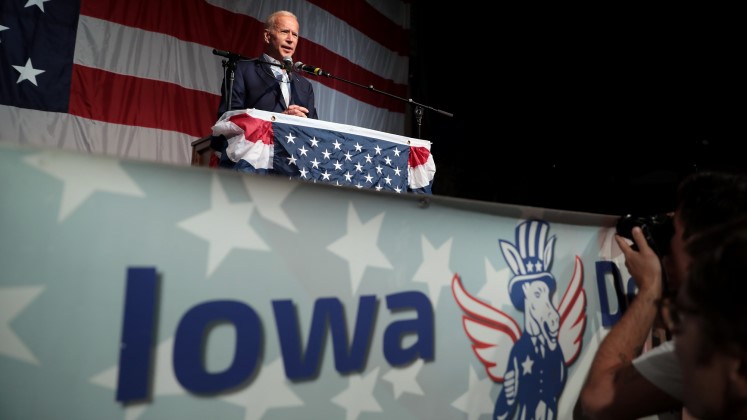 We can hope that the 2016 presidential campaign will be remembered as the most bizarre (and frightening) in history and that the record will not be broken in the future. As Election Day approaches, we all deserve an occasional countervailing force: a reminder that what we are witnessing can be funny as well as terribly disturbing. Fortunately, Ron Pruessen reminds us, Americans have always appreciated the way politics can prompt thoughts of the comic and absurd.
We can hope that the 2016 presidential campaign will be remembered as the most bizarre (and frightening) in history and that the record will not be broken in the future. As Election Day approaches, we all deserve an occasional countervailing force: a reminder that what we are witnessing can be funny as well as terribly disturbing. Fortunately, Ron Pruessen reminds us, Americans have always appreciated the way politics can prompt thoughts of the comic and absurd.
Obama has been bantering with Mel Brooks at a White House arts awards dinner and Hillary Clinton recently sat “Between Two Ferns” to spar with Zach Galifianakis. Is there a hunger for at least a bit of comic relief in the final weeks of an often scarifying presidential election campaign? (It does seem appropriate in 2016 that Election Day comes so close to Halloween.) Maybe we all need some laughs to counterpoint the heebie-jeebies (or screams) in the air. Remembering that the world could be funny and/or ridiculous was important even to Shakespeare, after all: witness the gravedigger’s gloom-trimming task in Hamlet or Falstaff’s slapstick counter-punching against all the Plantagenet pillage in the double-barreled Henry IV.
American elections – and American politics all around – have always revealed chiaroscuro patterns of dark and light, despair and silliness. Always. Insult comedy was on hand from the start, for instance. Benjamin Franklin could snipe at John Adams when they were sharing negotiating responsibilities for the Treaty of Paris that ended the Revolution: “He means well for his country, is always an honest man, often a wise one, but sometimes and in some things, absolutely out of his senses.” Adams could give as good as he got about his fellow ambassador: “If this gentleman and the marble Mercury in the garden of Versailles were in nomination for an embassy, I would not hesitate to give my vote for the statue, upon the principle that it would do no harm.”
Abraham Lincoln kept that the tradition very much alive in the 19th century. During the famous Lincoln-Douglas debates, he said his opponent’s arguments were “as thin as a homeopathic soup that was made by boiling the shadow of a pigeon that had starved to death.” (Lincoln had a wonderful way of laughing at himself too: when Douglas called him two-faced in one of their encounters, the response was “if I had two faces would I be wearing this one?”). Theodore Roosevelt helped bring wit into the 20th century. “When they call the roll in the Senate,” he once said, “the senators do not know whether to answer ‘present’ or ‘not guilty.’”
And now Barack Obama has given it 21st century cred, with a stand-up comic’s timing and deadpan delivery that effectively counterpoints (as Lincoln did) the times he has to be mourner-in-chief. A recent example: his toying with Donald Trump’s absence from the White House Correspondents’ Dinner, when the president mockingly asked “You’ve got a room full of reporters, celebrities, cameras, and he says no. Is this dinner too tacky for the Donald? What could he possibly be doing instead? Is he at home, eating a Trump steak, tweeting out insults to Angela Merkel?”
But the politicians haven’t gotten all the best lines. The roots of our ridicule-tinged op-ed/blog/Daily Show culture reach back into the wild pamphlet, broadsheet, cartoon-punctuated “media” world of the 18th century. Alexander Hamilton may be celebrated in today’s most successful Broadway musical, but he was frequently lambasted in the 1790s. (By the way, Hamilton would surely have appreciated the $849 price that even non-scalper tickets are fetching — 85 of the sawbucks that carry his picture.) As today, to be sure, political mockers usually took an equal opportunity approach in choosing targets for ridicule: John Adams and Thomas Jefferson would have been in the rogue’s gallery, as well.
By the late 19th century, poking fun at the foibles of politicians had become its own distinctive genre in American journalism. Finley Peter Dunne was a key forbear of the likes of Art Buchwald and Maureen Dowd. His “Mr. Dooley” pieces, especially, captured the thoughts of a Chicago bartender on the absurdities of the political arena at the turn of the century. “A man that would expect to train lobsters to fly in a year is called a lunatic,” he wrote during one campaign season, “but a man that thinks men can be turned into angels by an election is a reformer and remains at large.” Noting an inauguration tradition still with us, Mr. Dooley reported that “Th’ proceeding was opened with a prayer that Providence might remain under th’ protection of the administration.” (Dunne also penned the wistful thought that “The business of a newspaper is to comfort the afflicted and afflict the comfortable.”)
In the 1920s, print was joined by public performance as a means of offering wry and sly commentary. Will Rogers was a pathfinder here, paving the way for stage, radio, film, and television to become important tools for pricking political pretensions. “I don’t make jokes,” he said. “I just watch the government and report the news.” And in a strikingly prophetic moment: “Everything is changing. People are taking comedians seriously and the politicians as a joke.” (Fingers crossed that another Rogers line is not prophetic: “A fool and his money are soon elected.”)
An American Satyricon has never lacked for new chapters in subsequent decades. Mid-century brought the likes of Bob Hope and Mort Sahl, whose very different political preferences nonetheless saw both relying on flicking sardonic switch-blades. Today, the cast of caustic commentators is long: e.g., Bill Maher, John Stewart, Stephen Colbert, John Oliver, Trevor Noah, and Samantha Bee – with their few-holds-barred comic assault style. (Is a crowded field testimony to a political arena that grows ever more absurd?)
A blessing on those who’ve lightened the darkness of American politics over the centuries, on those who bring us smiles, chuckles, and belly-laughs, be they meek or fierce or rueful. They have foraged enough to remind us – toward the end of a brutal and bizarre campaign – that politics and politicians can be funny as well as frightening.
Featured image credit: Ted Eytan (Flickr, CC-BY-SA-2.0)
Please read our comments policy before commenting.
Note: This article gives the views of the author, and not the position of USAPP – American Politics and Policy, nor of the London School of Economics.
Shortened URL for this post: http://bit.ly/2dr1fUW
_________________________________________
About the author
 Ron Pruessen – University of Toronto
Ron Pruessen – University of Toronto
Ronald W. Pruessen has served as the Munk School of Global Affairs’ Director for International Partnerships & Research and is former Chair of the Department of History, University of Toronto. His primary research and teaching interests are in 20th century US foreign policy and international relations. Early work focused on the Cold War (e.g., John Foster Dulles: To the Threshold, 1888-1952) and he recently co-edited (with Soraya Castro) Fifty Years of Revolution: Perspectives on Cuba, the United States, and the World. He is currently writing a study of the way Barack Obama’s foreign policies relate to deeply rooted American views and behavior.







The main difference between today’s politicians and those of the past is that the second ones never were such media content contributors. I mean, these days you see lots of political memes, tweets and even election-based games and apps. Not so long ago I stumbled upon this Electoral game https://play.google.com/store/apps/details?id=com.redwerk.electoral Ain’t it a part of all this ‘pesidential elections fun’ thing? It sure is! Who could’ve imagine having something like this available to the vast audience in 18th or 19th century?